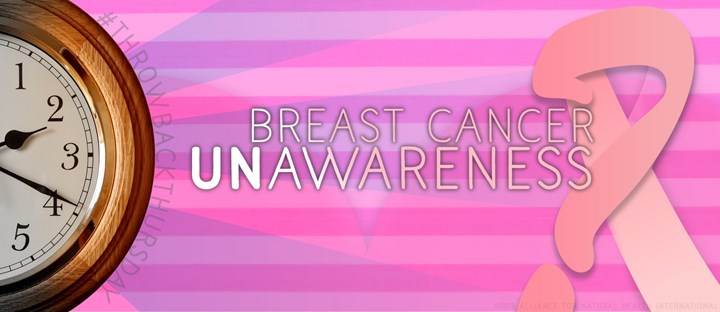Coconut oil – pure poison or health elixir?
As a new Lancet Public Health study attempts to dismiss low carb, high fat diets, reports have emerged of another Harvard Professor, Dr Karen Michels, who has blasted coconut oil, labelling it as “pure poison” and “one of the worst foods you can eat” during her recent lecture ‘Coconut oil and other nutritional errors’ (German language). In a media world of schizophrenic health messaging, it’s no wonder the public are confused — or worse, completely overwhelmed and rendered incapable of making better health decisions. Despite the best efforts of mainstream organisations, such as the American Heart Association, who warned against the consumption of coconut oil last year, the evidence continues to mount for the health protecting effects of this superstar of natural oils. Coconut oil has been found to benefit diverse health challenges from stress to positive effects on cholesterol levels and reduction of inflammation, the foundation of chronic disease. We respectfully suggest that perhaps Dr Michels would benefit from a closer look at the science behind the myriad benefits of coconut oil consumption, or better still trying a neuronally protective low carb, high fat diet!
US life expectancy declining
Two new studies highlight an increase in death rates in the US. The first published in The BMJ points the finger of blame at the current opioid epidemic, whilst the second cites a broad range of conditions as potential causes across all populations. These are observational studies but taken together, the stark warning they give should not be ignored. These studies give yet more support for the ANH-Intl blueprint for health system sustainability and urgency around the need for authorities to change both their, and our approach, to healthcare.
Long-term high dose vitamin D safe
The sunshine vitamin! Essential for our health, but many are grossly deficient, often requiring supplementation. However, in the EU many countries are seeking to set maximum permitted levels of vitamin D in supplements. Now a new study backs the safety of long-term high dose vitamin D supplementation. ANH-Intl has been challenging proposals that would amount to unnecessary over-regulation of vitamin and mineral food supplements since it was founded in 2002. It continues to positively shape the scientific and regulatory framework for vitamins and minerals to ensure that citizens’ fundamental rights and freedoms to the health care of their choice is maintained.
Cancer busting reasons to eat your veggies
There’s a very good reason why the ANH-Intl Food4Health guidelines recommend a plant-based diet, which has been underlined by a new mouse study. Researchers found phytochemicals known as indole-3-carbinol (I3C), in vegetables such as cabbage and broccoli (from the cruciferous family) could help prevent colon cancer and maintain a healthy gut by reducing inflammation and protecting the gut wall. Cruciferous vegetables should, however, be lightly steamed or blanched in hot water prior to eating — particularly if you are concerned that your thyroid may be sub-optimal.
Eating insects good for gut health
There are many sources of protein from animal, plant and insect sources. As world populations grow, researchers are turning their attention to insects as a sustainable protein source. Insects are a key part of traditional diets around the world, but western countries are no longer exposed to these food sources. Researchers investigating the safety of insect protein, specifically crickets, concluded in a recent study that consumption of cricket powder caused no gastro-intestinal issues and in fact, supported the health of the gut microbiome. The question now is will people in developed countries accept insect protein as a viable food source?
Swopping one bee toxin for another?
It would appear that bee colonies are still at risk following the EU ban of three pesticides known as neonicotinoids because they kill bees. Researchers are cautioning against replacement pesticide sulfoxaflor as it, “…can have a negative impact on the reproductive output of bumblebee colonies”. The new pesticide does not directly kill the bees but appears to affect their immune system or ability to reproduce. We will continue to support a move away from the current Big Ag/Chem methods to an environmentally sustainable and diversified system that protects and supports not just nature, but all animal life.
Water fluoridation is mass medication
The debate over the safety and efficacy of water fluoridation continues. In a recent ruling the Supreme Court in New Zealand concluded that the fluoridation of water is a compulsory medical treatment rather than “just topping up natural levels”, which is claimed by the NZ Ministry of Health. The ruling stated that, “It involves the provision of a pharmacologically active substance for the purpose of treating those who ingest it for dental decay. We agree with the Courts below that people who live or work in areas where fluoridation occurs have no practical option but to ingest the fluoride added to the water.” Big industry and governments have been complicit in promoting misinformation around mass water fluoridation, especially in light of other effective strategies with less health risk being available to reduce the risk of dental caries. For more information on the issues and potential health risk from the mass fluoridation of water visit our Clean Drinking Water campaign.
Pressure increases on parents to vaccinate
Health authorities around the world have been proposing increasingly aggressive tactics to bring pressure to bear on parents who exercise their right to make an informed choice not to vaccinate their children. Of extreme concern are recent media reports that proposals are being tabled in Turkey in which parents who refuse to vaccinate their children may be jailed for up to 2 years. In Finland in order to increase levels of uptake of the HPV vaccine, parents may no longer be asked for their consent to vaccinate their teenagers. Visit our Vaccine Choice campaign for more information on our right to make informed choices about vaccination.








Comments
your voice counts
23 August 2018 at 12:43 am
Anh! Your work on behalf of the human is so vital. At times like this I would like to have been financially wealthy to support you people more. This is completely anti human. Thank you for the vital information.
23 August 2018 at 7:53 am
Thank you Susana for a lovely message. We appreciate all the support given to us whether financial or by commenting, liking and sharing our work to inform many people.
Warm regards
Melissa
23 August 2018 at 2:20 pm
"consumers are confused — or worse, completely turned off"
Firstly I abhor the corporately assigned consumer label. I am in and of living relationships regardless the systemic mapping of selected functions. If anything, recognize who the consumed is!
Next, the PR is intentionally crafted to deliver confusion and doubt and effectively render the field unworthy of attention and it does so with a payload headline that most everyone is exposed to, and a first paragraph that supports the assertion with 'expertise' or association with reputed institutions or persons.
Most of the rest - in the version I saw - was effectively both a small print disclaimer - as it put the case FOR saturated fats and coconut oil - but also as the audacity to frame the true in the terms of an apparently authoritative statement.
As I wrote to 'Scientific attack on low carb diets' - our primary need is to protect the channels of communication from subversion and corruption by using the FORMS of communication to mask a trojan intent.
When ANH repeatedly responds AS IF these are firstly matters of reasoned debate, you reveal a naiveté to the nature of the investment in sickness and war - which is intra-personal as well as inter-personal. Without addressing the cause, the 'war on war - under any slogan, will persist in drawing the budgets of both funding and human sacrifice. This may seem unreasonable on surface - but as far as I see, the surface is cracked - and all the king's horses and men will never put it back together again.
True wholeness of being is not a matter of forcing separated parts to conform and comply to any dictate. The already whole, wake from the basis that kept them in sickness and division - as they are willing and ready to accept. A sense of 'too big to fail' operates a refusal to even look at change let alone be transformed by embracing it.
Fear works disinfo by making truth seem fearful... if you listen to it.
23 August 2018 at 6:25 pm
Hi Brian, lovely to hear your thoughts as always. Thank you for the time you take composing your messages. Fair point, we've done an edit and changed it to 'the public' and clarified our point, as I can see how our words could have been misunderstood.
Thank you!
Meleni
Your voice counts
We welcome your comments and are very interested in your point of view, but we ask that you keep them relevant to the article, that they be civil and without commercial links. All comments are moderated prior to being published. We reserve the right to edit or not publish comments that we consider abusive or offensive.
There is extra content here from a third party provider. You will be unable to see this content unless you agree to allow Content Cookies. Cookie Preferences